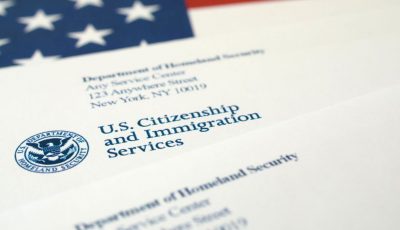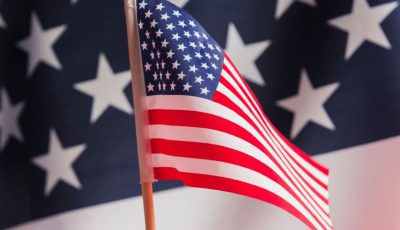Ninth Circuit affirms dismissal of Dynasty suit vs USCIS
The U.S. Court of Appeals for the Ninth Circuit has affirmed the federal court’s order that dismissed the lawsuit of the now-defunct Tinian Dynasty Hotel & Casino against U.S. Citizenship and Immigration Services and its officials over the denial of its petitions for CW-1 extension and transfer for its foreign workers.
The Ninth Circuit judges ruled that because the claims of Hong Kong Entertainment (Overseas) Investment Ltd. are not justiciable, they affirmed the dismissal order of U.S. District Court for the NMI Chief Judge Ramona V. Manglona.
Manglona dismissed HKE’s suit in 2017, citing the federal court’s lack of jurisdiction. She ruled that because the period in which HKE petitioned for CW-1 permits for beneficiaries has expired, the court cannot provide a remedy for the alleged injury of workforce deprivation. HKE therefore lacks standing.
HKE had filed a petition for judicial review in district court after USCIS denied 151 CW-1 visa applications that would have allowed HKE to employ foreign workers at a casino in the NMI.
HKE asked the district court to remand the applications to USCIS with instructions to approve them and for a declaratory judgment that HKE is a “legitimate employer.” Manglona dismissed the suit.
HKE appealed, asking the Ninth Circuit to reverse Manglona’s order.
In affirming Manglona’s ruling last week, Ninth Circuit judges Richard C. Tallman, N. Randy Smith, and Jay Bybee said that, for a plaintiff’s claim to be justiciable, it “must have standing to bring the claim, and the claim must not be moot.”
To establish standing, the judges said a plaintiff must show “an injury in fact, a sufficient causal connection between the injury and the conduct complained of, and, a likelihood that the injury will be redressed by a favorable decision.”
The judges said a case is moot if there is no “present controversy as to which effective relief can be granted.”
The judges said HKE’s request that they instruct USCIS to approve the visa applications is not justiciable because they “may grant it no effective relief.”
The judges said a CW-1 visa applicant must specify the dates for which the visa, if approved, would be effective.
“None of the visas HKE applied for would have been in effect beyond Nov. 7, 2015, and HKE has not submitted any further visa applications,” the Ninth Circuit judges pointed out.
They said HKE has not requested that any alien be permitted to work in the U.S. for any present or further period.
The judges took notice of HKE’s statement to the district court in another matter that it ceased operations in the NMI in March 2016.
“It follows that HKE no longer has need for CW-1 visas. Accordingly, even if HKE were to prevail on the merits of its suit at trial, no court could compel USCIS to issue HKE visas that would be effective going forward,” the judges said.
The judges said HKE’s request for a declaration that it is a “legitimate employer” is also not justiciable.
The judges said USCIS denied HKE’s visa applications in part because the company did not meet its burden to establish that it was an “eligible employer engaged in legitimate business.”
In reaching this determination, the judges said, the agency cited pending federal civil and criminal enforcement actions charging HKE with violations of the Bank Secrecy Act.
The judges said at the time USCIS issued its decision, HKE had entered into a non-prosecution agreement with the U.S. Attorney in which it stipulated to violations of the BSA and agreed to a three-year period of supervision during which it could be re-indicted if it violated the terms of the agreement.
HKE alleged that its reputation was injured after USCIS denied its visa applications.
“But there is no redress available for that injury in this posture,” the judges pointed out.
The judges said the sources of HKE’s alleged reputational injury are the civil and criminal enforcement proceedings that the U.S. government pursued against it, and any redress to that injury was to defending against the proceedings and appealing any adverse judgment.
The judges said neither USCIS nor the courts can change the outcome of these proceedings.
“Thus, because we cannot redress HKE’s alleged injury, it lacks standing to pursue this claim,” the judges said.
HKE has blamed USCIS of stigmatizing the company by designating it as an “illegitimate business” to the depriving it of its foreign workforce, which led to the eventual closure of Tinian Dynasty.
HKE, through counsel George Anthony Long, asserted that the stigma prejudiced HKE by severely interfering with the company’s ability to operate its hotel and casino.
Long discussed the stigma issue in HKE’s memorandum opposing U.S. Department of Homeland Security Secretary Jeh Johnson’s and USCIS director Leon Rodriguez’s motion to dismiss HKE’s lawsuit.
In Johnson’s and Rodriguez’s reply to HKE’s opposition, U.S. Department of Justice Office of Immigration Litigation trial attorney Heather Sokolower denied that USCIS designated HKE “as an illegitimate business” or ever refer to HKE as an “illegitimate business.”
Sokolower said HKE mischaracterizes the agency actions.
HKE is suing USCIS, the DHS secretary, and USCIS director over the denial of its petitions for CW-1 extension and transfer for its foreign workers.
According to HKE’s lawsuit, the final USCIS Administrative Appeals Office’s adverse agency decision affirming that the company is not engaged in a legitimate business for CW purposes affects more than three quarters of Tinian Dynasty’s employees.
HKE claimed it was harmed by the agency decision as it affects its ability to maintain and continue its business operations. Tinian Dynasty used to employ about 500 foreign workers.



























